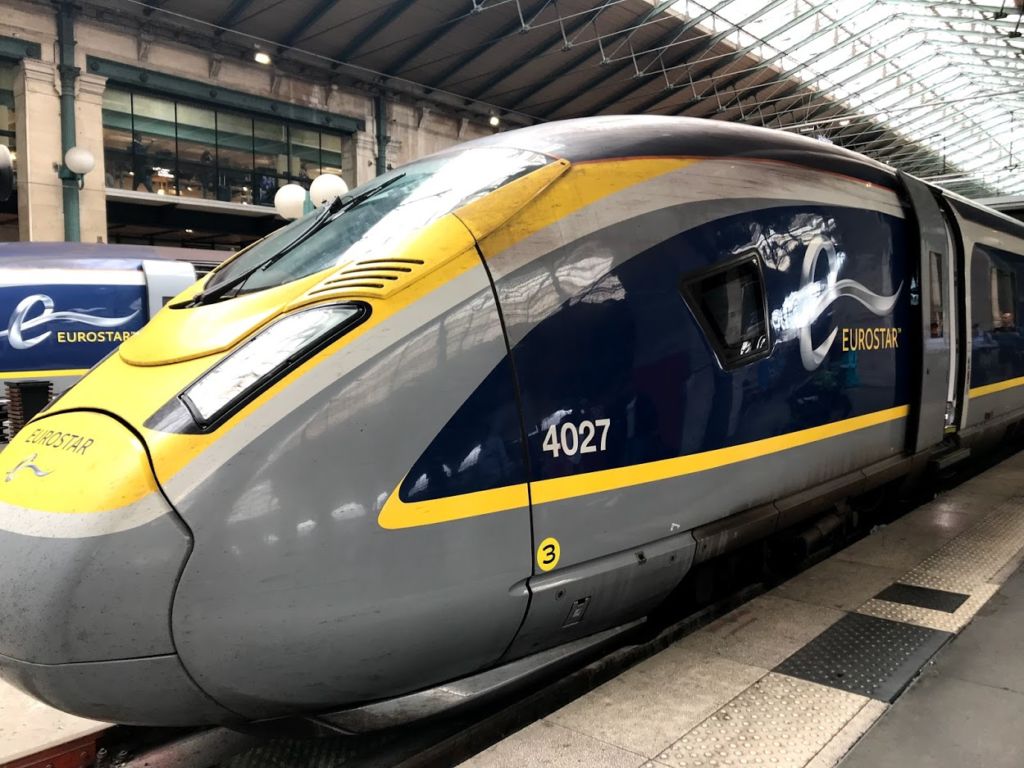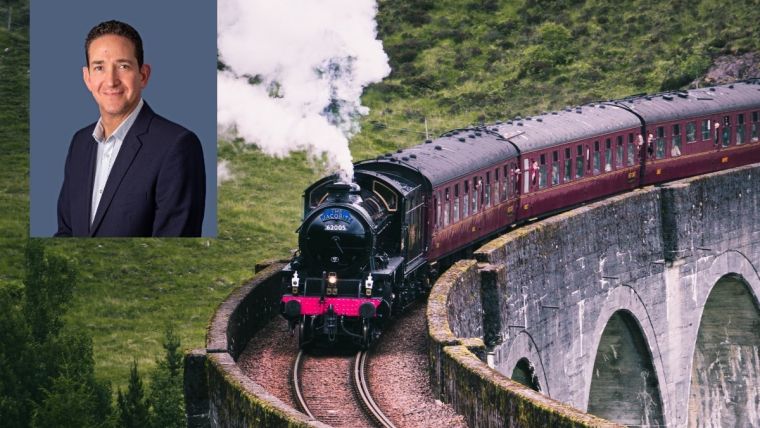TTG Media Limited
By: Gary Noakes
14 October 2021
On 30 October, a special train will leave Amsterdam for London carrying delegates to the UN COP26 climate summit.
Passengers will switch onto another train to Glasgow, which will host the 12-day summit where we will hear a lot about rail – and some sobering comments about air travel. Eurostar claims travelling from Amsterdam to London by rail emits 86% less CO2 per passenger than flying. While many airlines now include carbon offsets in ticket prices, there is no denying the difference in environmental impact. There is undoubtedly more public recognition of this, but has this translated into a switch to rail travel?
Anna Davies, Railbookers’ UK sales and marketing manager said 85% of the operator’s clients in 2020 were new customers. “Before Covid, we were seeing rail pick up; but last year really did open up another audience. We saw many people try it for the first time.”
Davies said 2022 was looking “very, very positive”. “I think Covid has increased the number of people saying ‘we always wanted to try this sort of holiday, but never got around to it.”
However, Peter Liney, chief executive of Great Rail Journeys, said that Covid meant there were no meaningful current trends but added several factors would “move the needle” towards rail.
“These things are ultimately driven by sentiment and that is only going in one direction – towards sustainability,” he said. “COP26 will be a focus for that.”
Liney highlighted the “billions” being spent on rail infrastructure globally, particularly in the US. “You won’t see an end to flying to places like the US, but you will see rail as more of an option once you’re there.”
Responsible Travel has many flight-free itineraries, but these arguably show the pitfalls of not travelling by air; some are one-way and, given the average consumer’s holiday time, require a flight home or lengthy, independent overland travel to return.
Customer director Tim Williamson, though, said clients were increasingly seeing the journey as part of the experience. “We’ve seen significant interest this year in flight-free adventures for 2022 and 2023 – London-Cairo via rail and cargo ship, for example, and around-the-world voyages without stepping on a plane. “We need to fly less. I think more people will move away from frequent short-haul trips, and instead opt for fewer, but longer, holidays.”
Rail Resurgence?
Railbookers’ client profile is 55-plus couples, confirming rail travel suits those with more time. However, Davies said clients were getting younger and include families, with sustainability a key factor. “We hear more and more customers referencing sustainability, and making holiday decisions for those reasons.”
Agents have a role to play, she said, giving the example of a multi-centre Venice, Florence and Rome break. “Rail is the easiest way to link them, but people don’t go into an agency asking for that.”

Eurostar could be a key plank in persuading travellers to ditch flying. In 2019, it revealed plans to merge with Belgian high-speed rail operator Thalys. Pre-Covid, Eurostar and Thalys ran 112 trains a day, carrying 18.5 million passengers annually. They plan to grow this to nearly 30 million by 2030. Covid stalled the deal, but work is progressing. Eurostar said one attraction of a merger would be a single contact point for ticketing and support.
Innovations like this may drive rail’s resurgence as much as the sustainability argument, but detractors argue many trains run on diesel, and that even electric trains rely on coal-fired power stations to operate.
Liney predicted a profound shift to rail replacing some short-haul flights “within a decade” as airlines struggle with sustainability pledges. “It will take them 15 years-plus; by that time, rail infrastructure will be phenomenal.”
A gap, he believes, exists between those who experienced Interrail in their youth and have not holidayed by train since, and the over 60s, who make up much of the current rail market.
“If you start to deliver to the demographic below 60, you are going to get into significant numbers. The ‘inner short-haul is where it will go; you can’t go to Dubrovnik by rail, but you can to Berlin or Marseille.”
Rail will never replace fly-and-flop for the average family, but climate change means it is a growing market – one that agents need to be aware of.
Read the full article, here.






